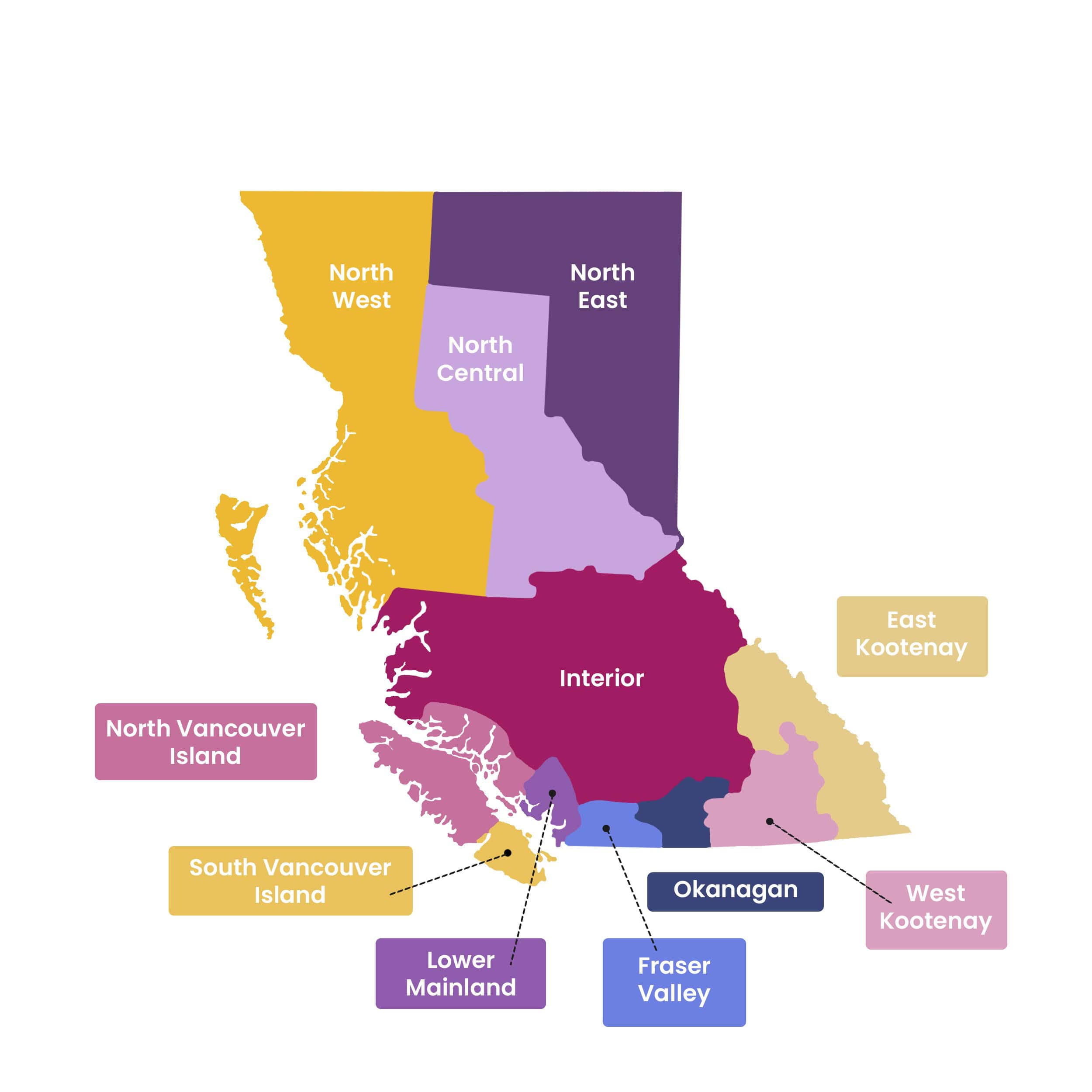Last week, EVA BC reviewed Premier David Eby’s mandate letters to ministers and parliamentary secretaries and noted the mention of gender-based violence in his letter to Brenda Bailey, Minister of Finance. The outline of responsibilities for the new Parliamentary Secretary for Gender Equity, Jennifer Blatherwick, states an expectation for her to:
Work with partners to address the national epidemic of gender-based violence as it relates to our province, and work with stakeholders to ensure that government programs and initiatives reflect the interests and concerns of people with lived experience.
To date, the provincial government has worked to respond to gender-based violence in the province with Safe and Supported: BC’s Gender-Based Violence Action Plan which lays out steps to “increase safety and supports for survivors, lift up Indigenous-led approaches, and break cycles of violence through prevention, healing and accountability.” And this provincial action plan is well aligned with the National Action Plan to End Gender-Based Violence.
There are now 70 sexual assault services programs and five sexual assault centres around the province well established and doing the work to support survivors. The Intimate Images Protection legislation is in place and offers a pathway for those seeking recourse on protection of their images.
And last year the government asked Dr. Kim Stanton to review BC’s legal system’s treatment of intimate partner and sexual violence and while we wait her final recommendations, her recent report on the issues highlights the continued need for the legal system to acknowledge and adequately respond to the reality of intimate partner and sexual violence.
However, women in BC continue to face high rates of intimate partner and sexual violence in this province. In 2023, there were 14,270 cases of IPV reported to police in BC (Stats Canada: Trends in police-reported family violence and intimate partner violence, 2023) and we know that “fewer than one third of victims living with IPV report the victimization to police, more often only confiding in a trusted friend or family member,” (BC Coroners Service Death Review Panel: A Review of Intimate Partner Violence Deaths 2010-2015.)
In our open letter to candidates in the 2024 provincial election, we outlined our three asks to help our work to respond to and prevent gender-based violence. Here is an update of those asks on what we believe is possible and necessary to respond to gender-based violence in this province:
- Update and create policy:
- The Violence Against Women in Relationships (VAWIR) policy
35 years ago, in 1993, the province developed the Violence Against Women in Relationships (VAWIR) policy to revise and expand the Ministry of Attorney General’s earlier “Wife Assault Policy.” The VAWIR policy was designed to ensure a coordinated response to intimate partner violence across legal, child welfare, police, and victim services agencies and has been the backbone of our coordination work. Although the policy was updated several times (1996, 2000, 2004, and most recently in 2010) it is overdue for an update to include what we’ve learned about best ways to support survivors. - Implement BC’s first provincial Sexual Violence Policy.With 70 new Sexual Assault Services programs and five new Sexual Assault Centres it is imperative that a provincial Sexual Violence Policy guides an integrated and coordinated response to support survivor recovery, perpetrator accountability, and community safety.
- The Violence Against Women in Relationships (VAWIR) policy
- Establish an Intimate Partner Violence Death Review committee in BC
IPV can be fatal. The BC Coroner’s Service reports that there were 135 IPV-related deaths in BC from 2012-2022. And based on the 2024 Canadian Femicide Observatory’s #RememberMe report, last year 20 women in BC were killed by an intimate partner.IPV deaths are preventable, and we must do everything we can to improve our systems of response and regain the trust of survivors.
BC has the opportunity to build on existing, successful models from across Canada to establish an ongoing Intimate Partner Violence (IPV) death review committee. The findings of this committee will be critical to understand the factors that contribute to intimate partner violence-related deaths, improve gender-based violence response systems, and prevent the loss of lives in BC.
- Fund anti-violence programs and community coordination
We know that coordinated, collaborative responses have the best chance of enhancing the safety of survivors of gender-based violence. In many communities across BC, frontline anti-violence workers in provincially funded programs lead community coordination initiatives that address sexual and intimate partner violence. These include VAWIR (Violence Against Women in Relationships/Violence in Relationships), Sexual Assault Coordination committees (SACs), Interagency Case Assessment Teams (ICATs) and Third-Party Reporting (TPR).These essential initiatives need dedicated funding for the anti-violence workers whose leadership and close work with community partners is what develops, implements and sustains them.


